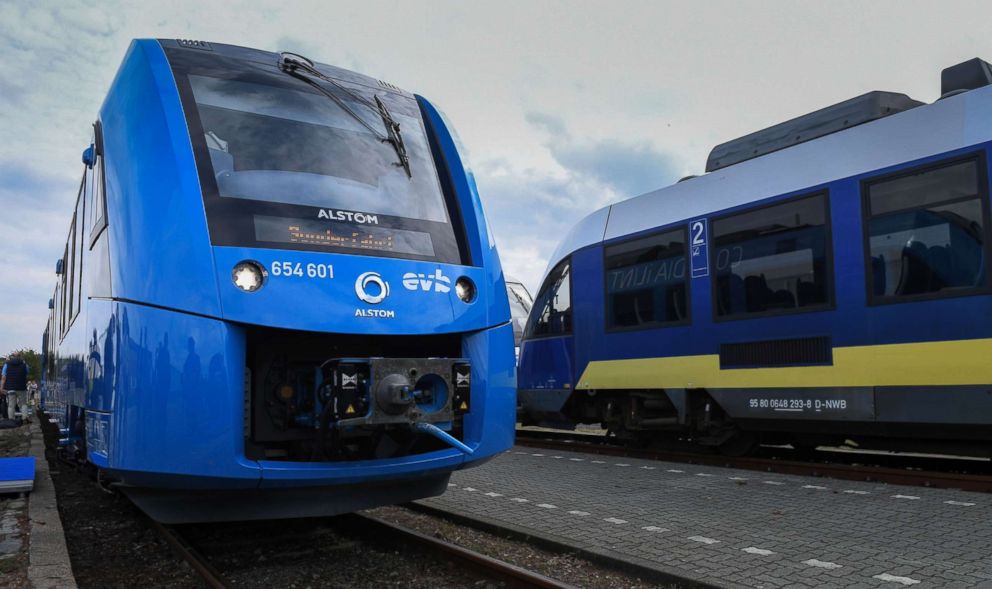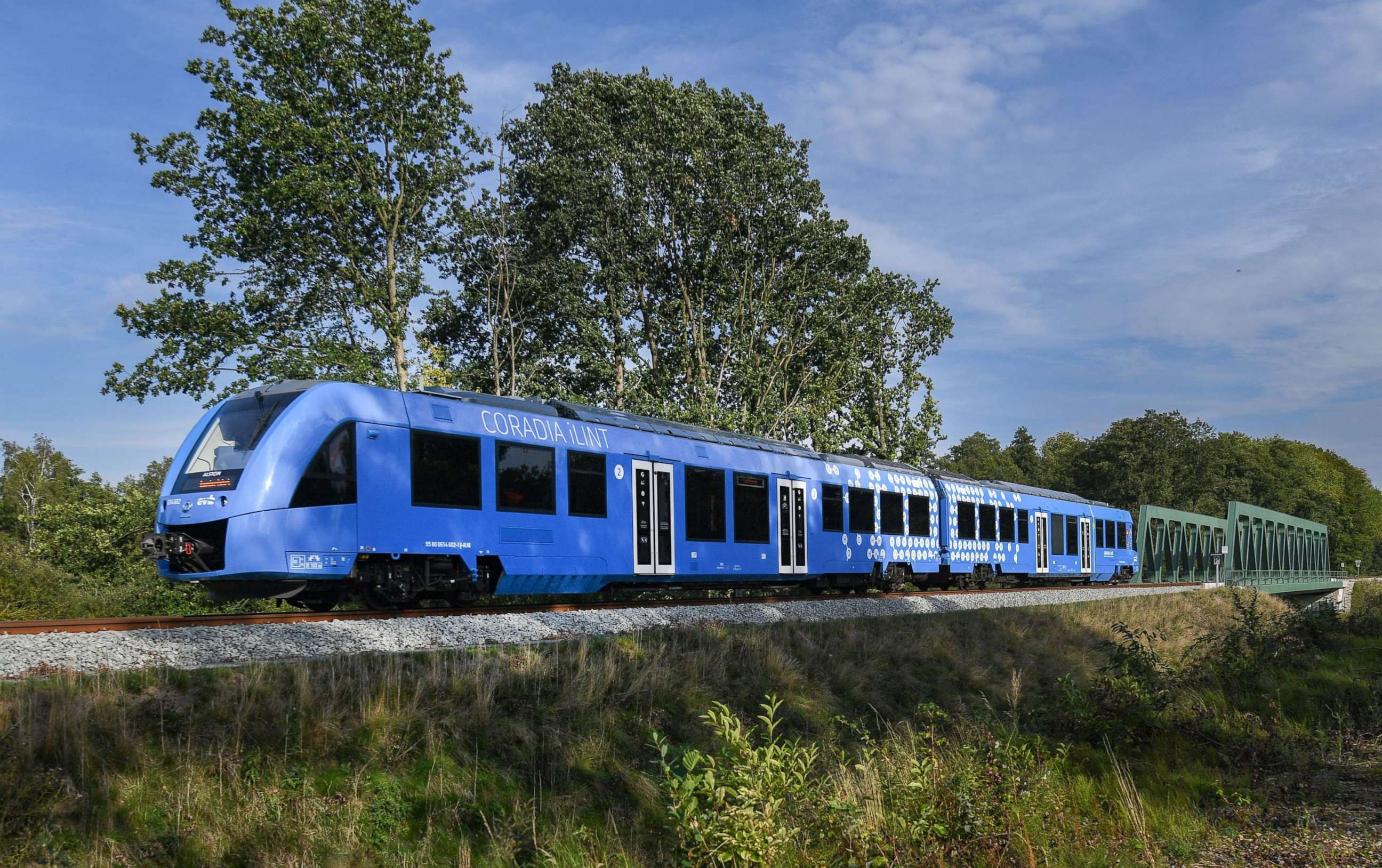World's 1st hydrogen-powered trains hit the tracks in Germany in a breakthrough for 'green' fuel.
Releasing water and steam, the trains will replace their diesel counterparts.
BERLIN -- Some German commuters can now ride the rails on a pollution-free hydrogen train, a significant milestone for “green” transportation powered by natural resources.
"The world's first hydrogen train is entering into commercial service and is ready for serial production," CEO Henri Poupart-Lafarge of French rail company Alstom said during the unveiling ceremony at a refueling station in the Lower Saxony town of Bremervörde, according to news agency AFP.
It is an important step in Germany’s “energy transition” plan that aims to dramatically reduce pollution and boost the use of renewable energy by 2050.
The trains, made by Alstrom, will replace diesel trains operating on the route.
Although they are more expensive than their polluting diesel counterparts -- most German trains run on diesel fuel -- the new locomotives are pollution-free, emitting only steam and water. Energy is stored in an ion lithium battery on each vehicle.

The trains link the 62-mile stretch between the towns of Cuxhaven and Buxtehude and are the first of 14 additional hydrogen-powered trains set to launch by 2021 in the state of Lower Saxony, AFP reported.

Bernd Althusmann, the state’s economics and transport minister, called it “pioneering” work in local transportation, according to German news network Norddeutscher Rundfunk.
It sets the precedent that “future rail transport can be operated largely climate-friendly and emission-free,” Althusmann added.
Many German cities experience high levels of air pollution, to which diesel-powered vehicles contribute. The European Commission took Germany and five other European Union countries to court in May for exceeding pollution levels above the E.U. threshold and failing to take action on time.




